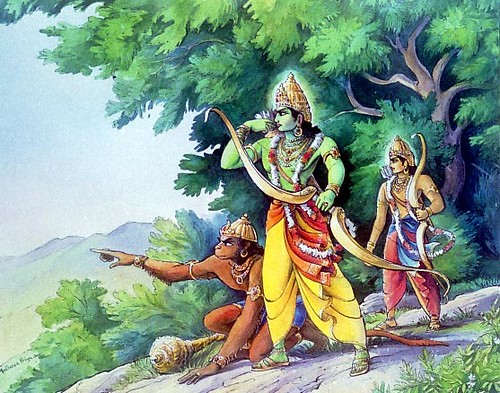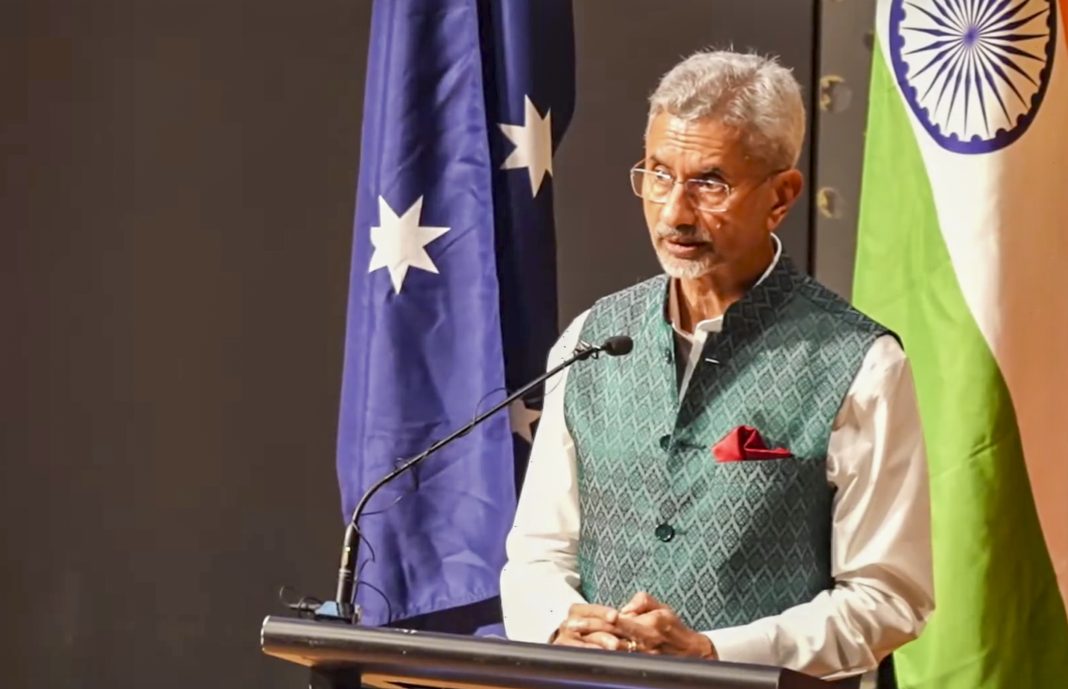Beijing, Nov 3: China has had footprints of the stories of Ramayana cloaked in Buddhist scriptures for centuries, scholars here have said, bringing to the fore perhaps for the first time, the influence of Hinduism in the country’s checkered history.
At a symposium on “Ramayana- A Timeless Guide” organised by the Indian Embassy here on Saturday, a host of Chinese scholars associated with longstanding research on religious influences, made candid presentations tracing the historical routes through which Ramayana reached China and its influence on Chinese art and literature.
“As a classic intertwining the religious and the secular world, the influence of Ramayana has grown ever more significantly through cross-cultural transmission,” Dr Jiang Jingkui, Professor and Dean of the Institute for International and Area Studies of Tsinghua University said.
“China, too, has absorbed elements of this epic, which not only left traces in Chinese (majority) Han culture but was also reinterpreted and given new meaning in Chinese Xizang (Tibetan) culture,” he said. China officially refers to Tibet as Xizang.
“This cultural migration and adaptation demonstrate the openness and flexibility of Ramayana as a classic and worldly text,” Jiang said.
The earliest content related to Ramayana in China was introduced into the Han cultural sphere, primarily through Buddhist scriptures, he said.
While it was not fully incorporated as a complete work into the Han cultural sphere, parts of the epic were incorporated into Buddhist scriptures, he said, citing Chinese translations of Buddhist scripts in which “key figures such as Dasharatha and Hanuman were noted as Buddhist characters”.
“A famous example is that Hanuman was transformed into a Monkey King who obeyed Buddhist teachings, blending into classic Buddhist moral narratives,” Jiang said.
The Monkey King with human characteristics called Sun Wukong, has remained forages in the best-loved and most enduring Chinese literature and folklore.
In his presentation, Pro Liu Jian of the National Institute of International Strategies of the Chinese Academy of Social Sciences, said many Chinese scholars agree that Sun Wukong can be traced to Hanuman, though some scholars say he is a “domestic product”.
“Chinese scholars generally agree that the image of Sun Wukong comes from that of Hanuman. Therefore, Sun Wukong is not a domestic product, but a character from India,” he asserted.
Speaking on the topic ‘Footsteps of Ram in China’, Prof Qiu Yonghuai, Chief expert and Deputy Director of China Centre for South Asian Studies of Sichuan University, in her presentation displayed photos of a wide variety of different Hindu deities in the museum Quanzhou, in China’s Fujian province.
She even showed a photo of a Buddhist temple managed by a Hindu priest.
“It was primarily through Buddhism that Indian culture took its stronghold in China. This is the reason why in the history of Sino-Indian cultural relations, Hinduism occupies a negligible position,” she said.
“Multifaceted Indian culture both Buddhist and non-Buddhist made its mark on Chinese soil,” she added.
Jiang, in his speech also recalled how the famous seventh-century Chinese scholar Xuanzang who visited India, studied at Nalanda University and brought back a host of Buddhist scriptures providing detailed accounts of Ramayana stories he heard during his pilgrimage.
“However, due to the Hindu background of Ramayana and the predominance of Buddhism in China, the text was neither fully translated nor widely circulated within Han culture,” he said.
The first Chinese translation of Ramayana from Sanskrit was done by Ji Xianlin in 1980.
Ji’s translation was a “significant breakthrough for Chinese academia, providing Chinese readers with access to an Indian literary classic and establishing a new bridge for Sino-Indian cultural exchange,” Jiang said.
Ji dedicated nearly a decade to translating this vast work of twenty-four thousand verses, and his version has become a cornerstone for the study of Ramayana in China, he said.
Jiang added that Ramayana has a more extensive and longstanding history of influence in Tibet, where it was first introduced during the period of the Tubo Kingdom.
Through literary works and theatrical performances, Ramayana has not only become a subject of in-depth study among Tibetan scholars but has also gained widespread popularity among common people in Tibet.
“This demonstrates the powerful vitality of Ramayana as a cross-cultural classic,” he said
“Ramayana is not only an epic but also a profound exposition of the ideal personality and ideal society. Through the actions and words of Rama, as well as the establishment of the ‘Ram Rajya’, the epic presents multiple dimensions of the concept of ‘Adarsh’ (ideal) in Indian culture,” he said.
In his address, Indian Ambassador to China Pradeep Kumar Rawat said Ramayana is believed to be the oldest poetic work of human civilisation.
“While the historians have not come to a definite conclusion about the time period when the Ramayana was written, there is astronomy–based research finding that date Ramayana to about 7th Century B.C.,” he said.
“The Ramayana has also transcended geographical boundaries, adapting itself to seamlessly merging into local cultural tapestry, while maintaining its core values,” he added.
Several Chinese professors, including Yin-Xi-nan of Sichuan University, and Xue Yuyun of Gansu National University for Nationalities made presentations on the impact of Ramayana in China over the ages.
Ambassador of Thailand to China, Chatchai Viriyavejakul and Perulian George Andreas Silalahi, Deputy Ambassador of Indonesia, spoke of the impact of Ramayana in their countries. (PTI)




